[ad_1]
As a splatter of paint falls on 11-year-old Keshav Nair’s arm, he complains to his instructor Sruthy Poovattil while glaring at the source of his discomfort — batchmate Mohit Krishna who flashes a toothy grin. It is a din of activities at Educool Learning Solutions’ terrace-top activity centre in Kowdiar as children sit on wooden stools, made by themselves, and paint the walls.
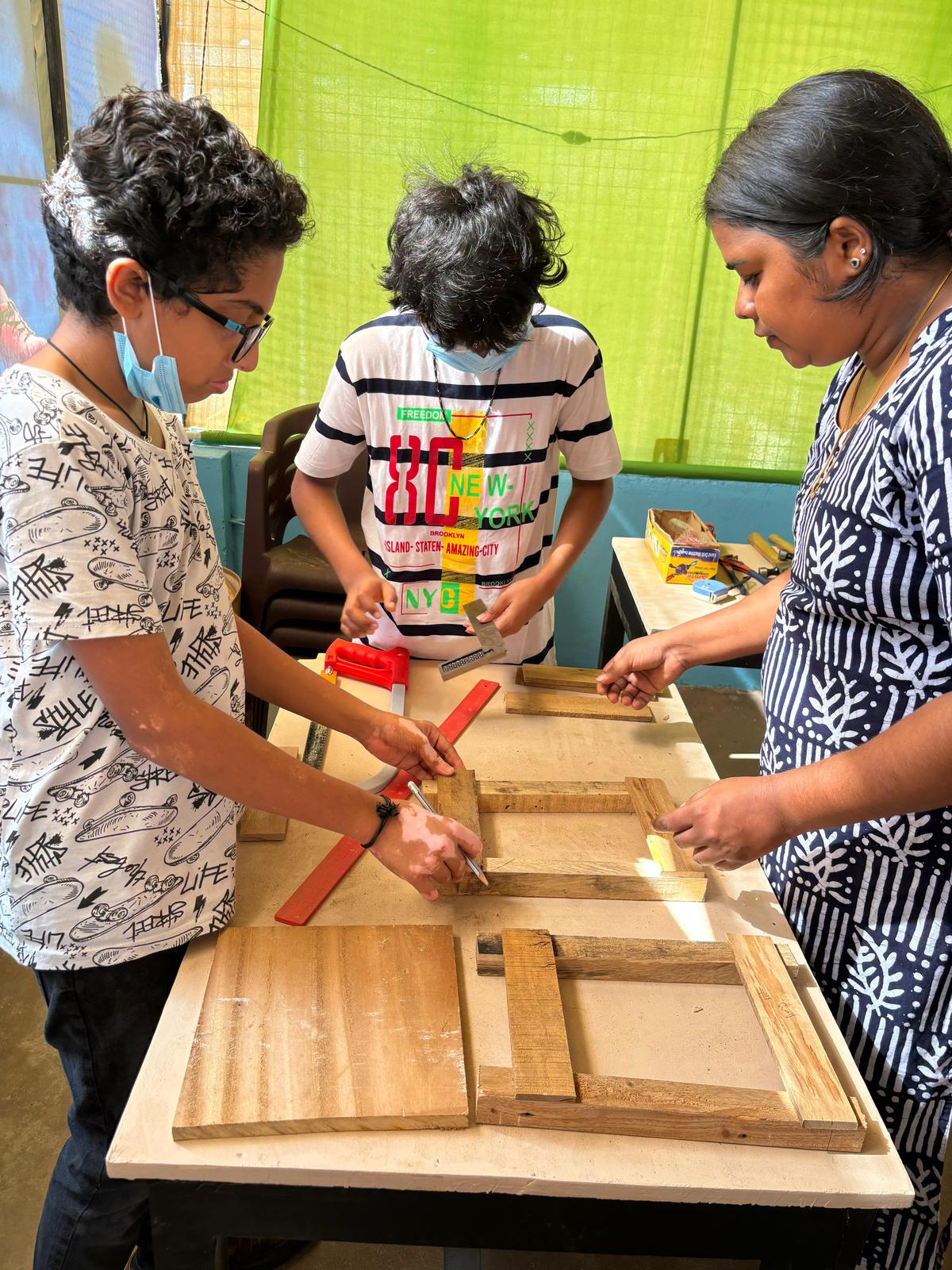
Carpentry class in progress at the camp.
| Photo Credit:
Special Arrangement
It is the day allotted for wall painting at the centre’s summer camp. An older batch adds the final coat of paint to a wheelbarrow, again made in-house. A white board mentions the steps required to be followed. Educool Summer Camp is only a few weeks old but already slots are full. Demand for the classes, ranging from carpentry to cooking, has led the organisers to slot two batches for May. The centre is the brainchild of Thomas J Poovattil and Sreekumar VS, retired teachers and friends who have long believed in an integrated teaching system. Developing an activity-based, child-centric learning curriculum became smoother with Thomas’ daughters Sruthy and Meera, also teachers, joining in.
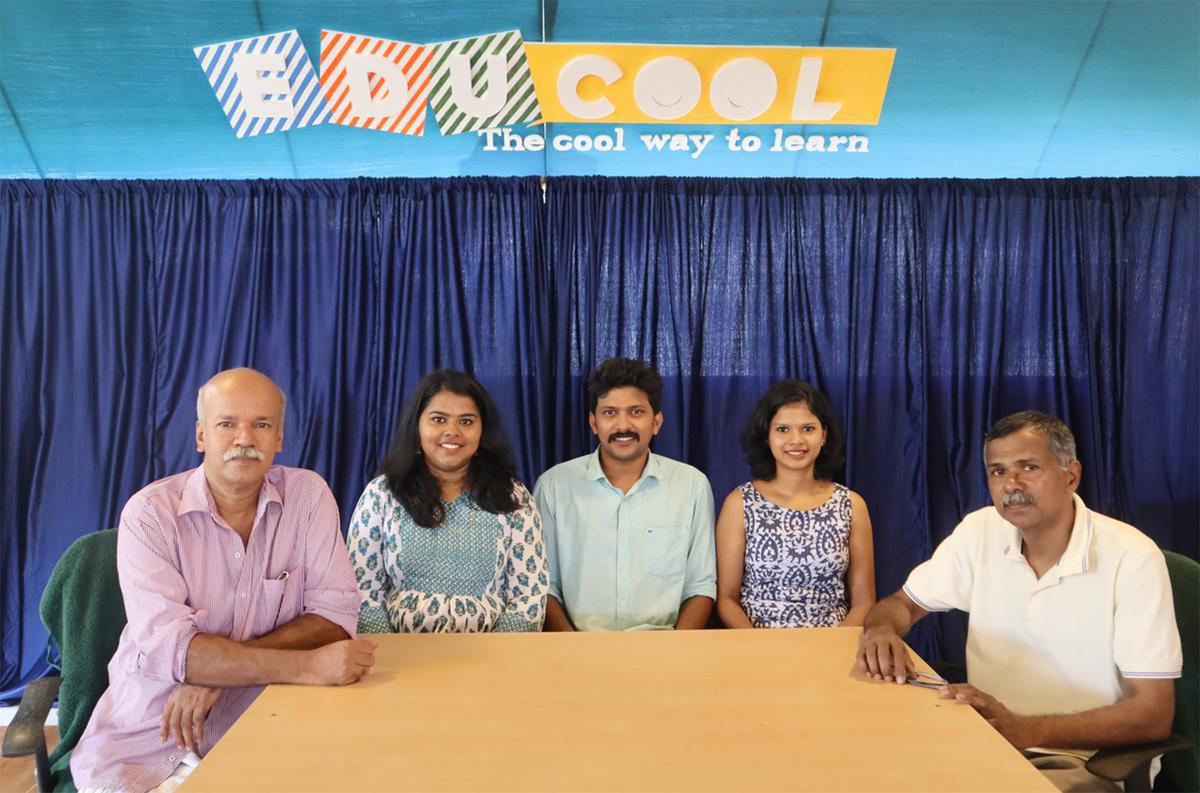
Educool educators (From left) Sreekumar VS, Sruthy Poovattil, Akhil Joseph, Meera Poovattil and Thomas J Poovattil
| Photo Credit:
Special Arrangement
Following a thorough study of the revised National Education Policy (NEP) of 2020, Thomas and Sreekumar were convinced that it was similar to the state syllabus’ District Primary Education Programme (DPEP) model. Encouraged by the management members of their former workplace, a private school in the city, and their textbook publishers to develop a similar range of textbooks for primary classes following the syllabus of the Central Board of Secondary Education (CBSE), the duo took up the challenge. Their friend Anand Victor, principal of a private school in Qatar, also pitched in.
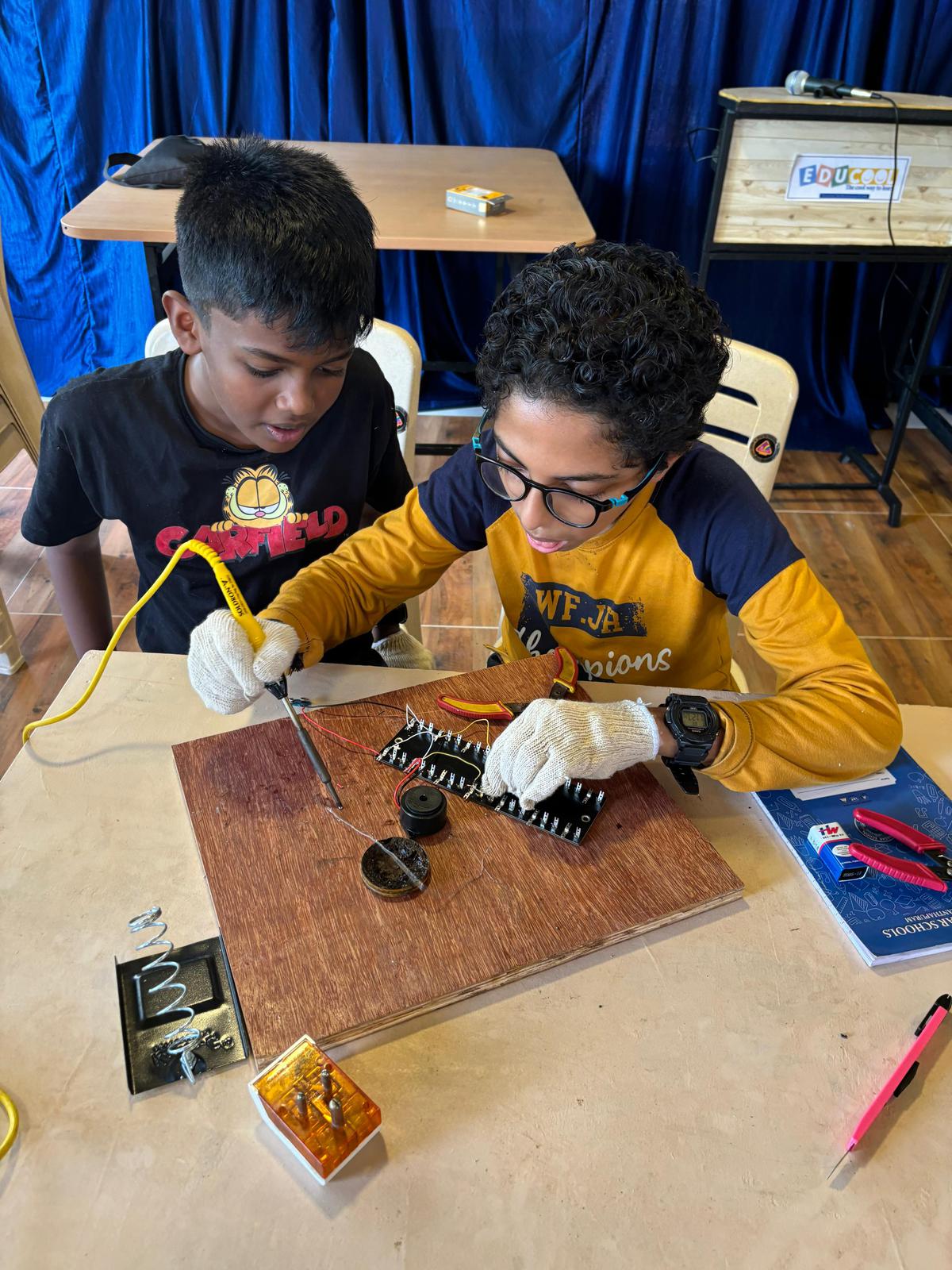
Participants of Educool’s summer camp at a session on electricals
| Photo Credit:
Special Arrangement
The textbooks were introduced as a pilot study programme led by Thomas and his team of four teachers last year, based on the competencies stated by the NEP that children should develop. But the persistent thought that such competencies could be taught better with an efficient teacher-student ratio where the latter could be attended to better, led to the idea of a skill spectrum summer camp.
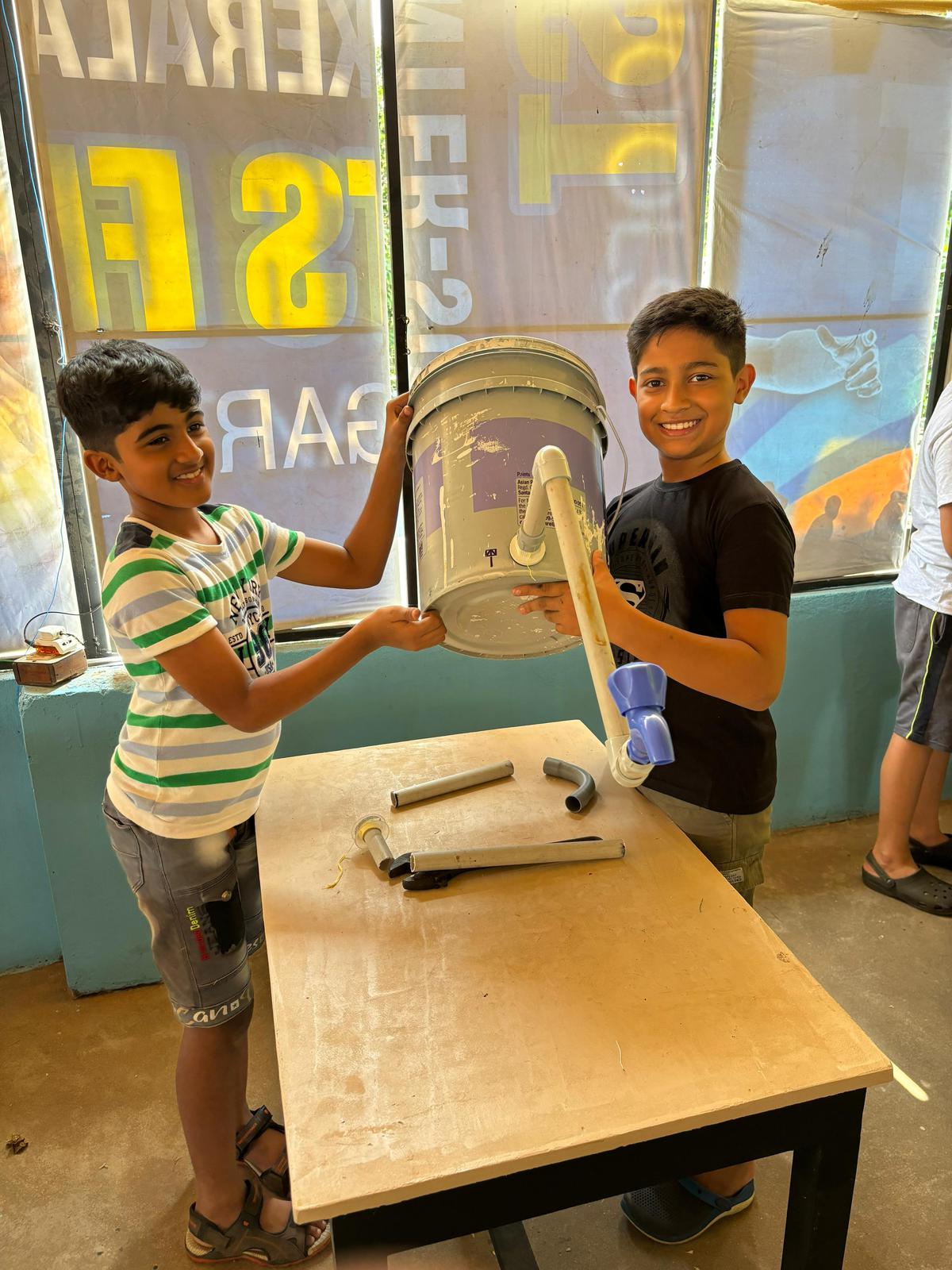
Children get hands-on training during a session on plumbing at Educool’s summer camp in Thiruvananthapuram
| Photo Credit:
Special Arrangement
“Is a screw tightened by turning it to the right or left? Children won’t know unless they are given the opportunity to learn. We grew up in villages, I am from Vithura and Sreekumar sir from Vamanapuram. If there were people our age at home back then, we did not need external help, we did it all ourselves. This is a time to revive such a practice. Children should have the confidence to say ‘I know this’,” Thomas adds.
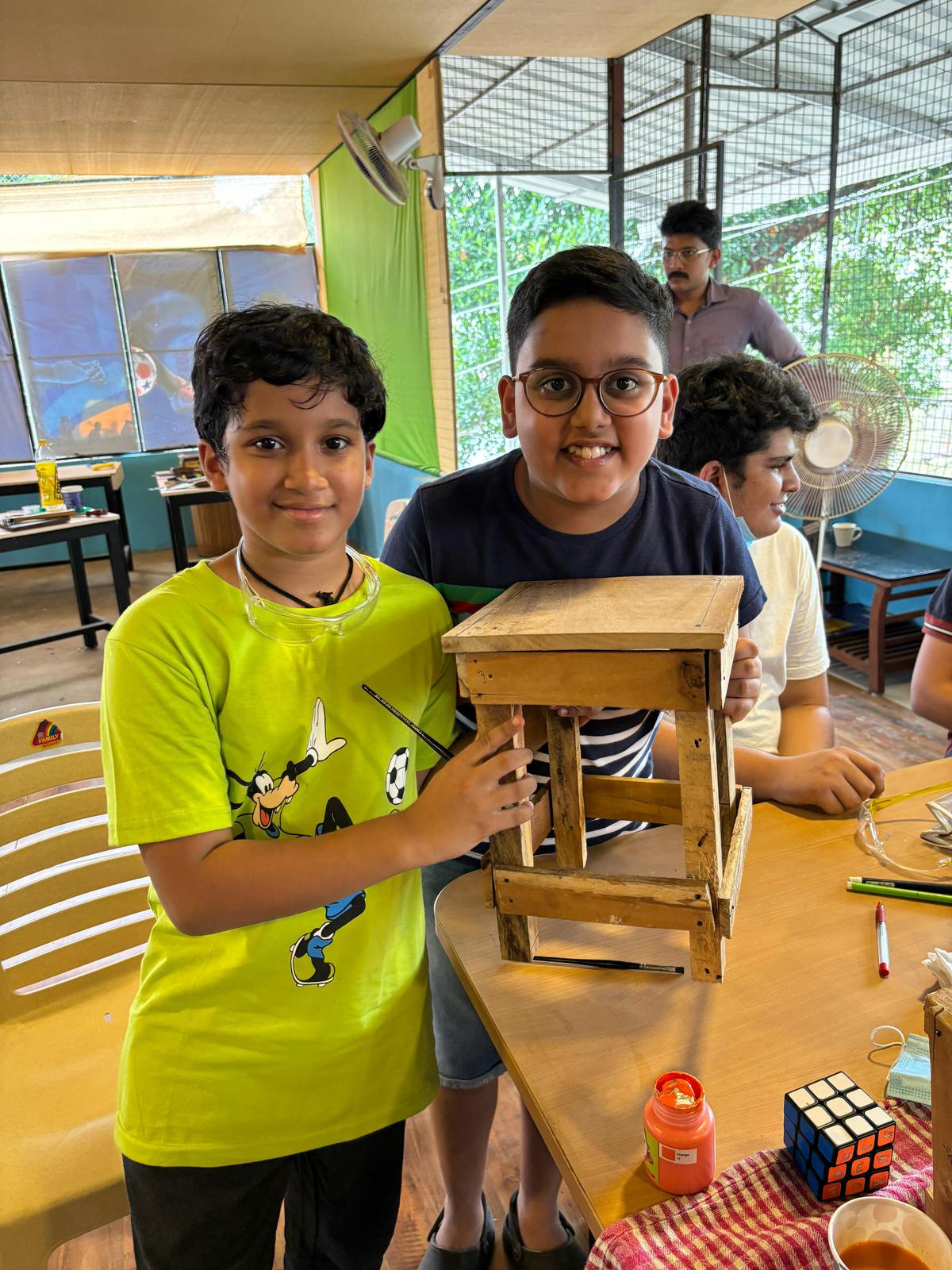
Participants display a wooden stool they made
| Photo Credit:
Special Arrangement
Cookery class involves homework where students are encouraged to help out in the kitchen and post photos of what they prepared. Carpentry class covers the basics and a short stool is made in three hours under Thomas’ guidance. “Now I know why a carpenter charges so much. It isn’t as easy as it looks,” Keshav observes.
A certified expert takes the session on electricals, teaching where the supply comes from, explaining phases, handling switches, with an emphasis on safety measures and the reminder that any related work at home is to be done under parental supervision. “It has to give a spark, these are the initial stages. The extended learning process is taken forward by the children,” notes Sreekumar, a maths teacher. He is also part of Rangaprabhath children’s theatre group from its early days. He teaches soft skills and creative dramatics at Educool.
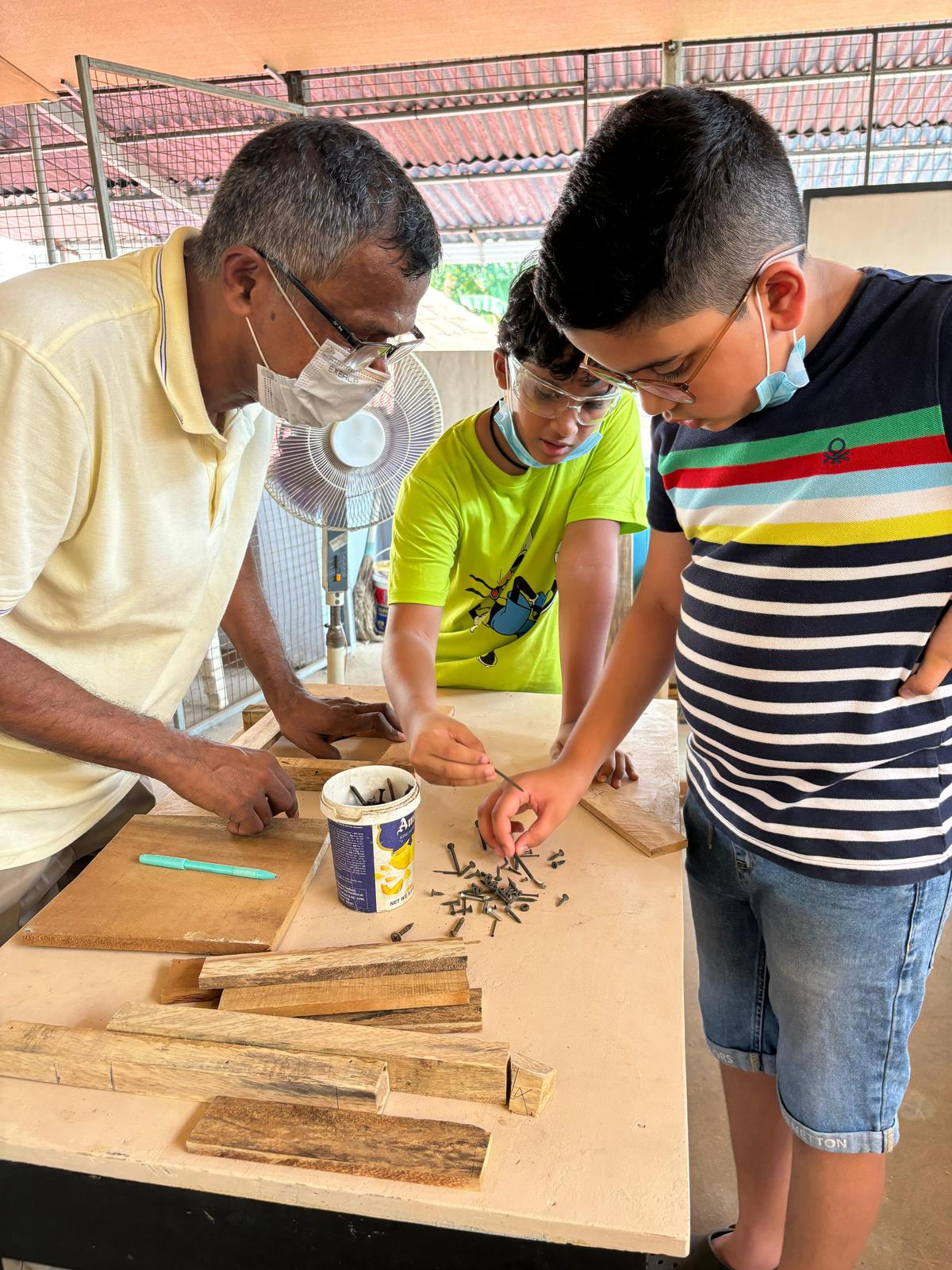
Thomas J Poovattil at the carpentry session
| Photo Credit:
Special Arrangement
With Sreekumar deciding that the terrace of his house was the best place, Thomas, his daughters and Sruthy’s husband Akhil Joseph, who co-ordinates activities, set to work immediately. An old cot became a quirky bookshelf, a height-adjustable podium was built from a crate. “All reminders of our own childhood,” Sruthy says, showing toys her father built using PVC pipes and CDs for his Malayalam classes to make word-building interesting.
“This shouldn’t stop with us. It should be replicated,” Sreekumar says, adding that parents can easily impart similar skills. Starting June, he and Thomas will introduce workshops for parents and senior citizens apart from holiday and after-school sessions for children, providing support for science projects and experiments.
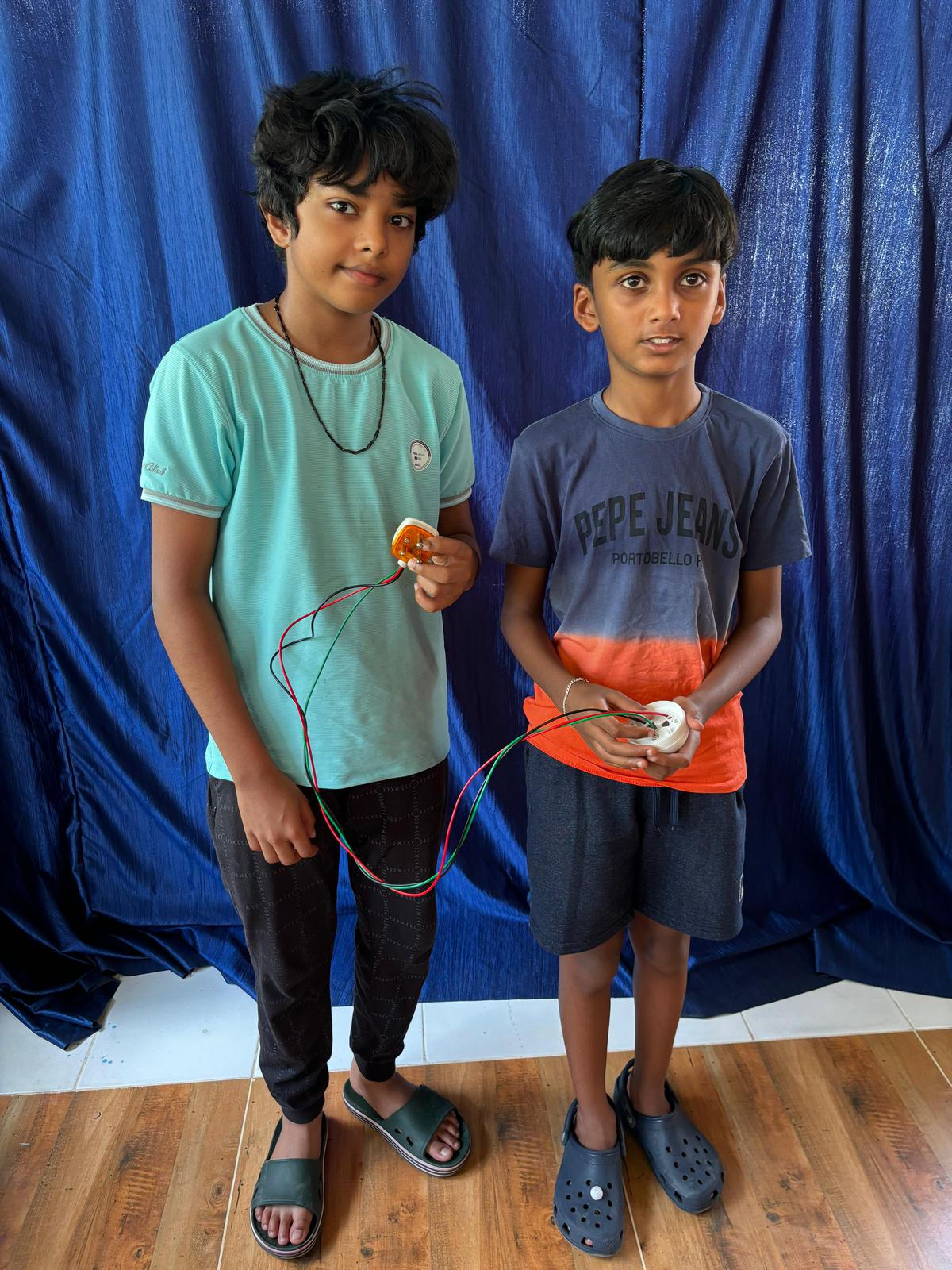
Participants understand the basics of electricals during the summer camp conducted by Educool.
| Photo Credit:
Special Arrangement
For now, carpentry and cooking are clear favourites though other classes seem to have had the intended impact. Susheer Ramachandran, Mohit’s father, says, “He went upstairs to where our water tank is installed the other day, saying at plumbing class, they were told to check the lines from the tank. He made a device on his own too. When they enjoy learning, that makes a difference, rather than forcing them. It also makes them think about why something is a particular way.” For the founders of Educool, that would mean their mission has been accomplished.
[ad_2]
Source link





